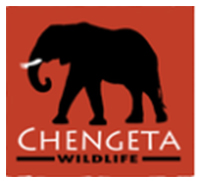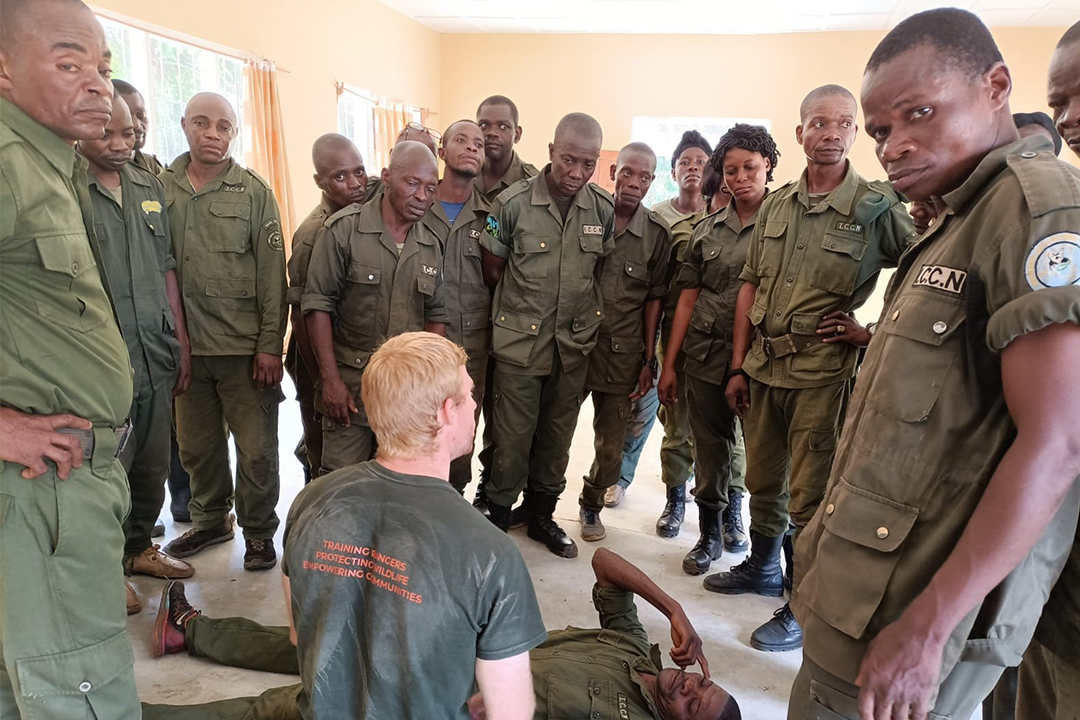We are delighted to share that Chengeta Wildlife has partnered with the Institut Congolais pour la Conservation de la Nature (ICCN) and World Wildlife Fund (WWF) to train ecoguards in Salonga National Park (SNP), in the Democratic Republic of Congo (DRC).
Salonga is the largest protected rainforest in the whole of Africa (as big as countries Belgium and Luxembourg combined) and is home to many endangered species including okapi, bonobos, and the critically endangered forest elephant (who also inhabit the dense forests of the Central African Republic).
In Salonga, we are working to train the 273 eco-guards who are employed by the ICCN to monitor and patrol this vast forested area. They mostly come from local villages, due to the remoteness of the region.
Chengeta’s Holistic Approach
Our holistic approach to training environmental rangers and ecoguards provides local teams with the required professional training in navigating and tracking, human rights laws and duties, as well as our expertise in collaborating with the local communities for both the benefit of the communities themselves and the protection of the park.
Read more about our Communities Program work in central Africa here.
A Sustainable Approach
Chengeta Wildlife lead trainer, Yoann Galeran, has spent several months on the ground in Salonga leading the mentoring and monitoring programme. He says, “The training of ecoguards in Salonga is not limited to a one-off training programme, but accompanies the eco-guards in the preparation, implementation and follow-up of patrols.”
Our ethos is to provide knowledge and skills that will enable these anti-poaching units to maintain and develop their skills even well after our trainers have left.
Yoann goes on to say that he believes that one of the greatest challenges is “to reconcile the protection of the rainforest and its species with the well-being of the local population.”
Community Cooperation
We strongly believe that working with local communities is the cornerstone of the program to counter the illegal wildlife trade, which is why our holistic approach also includes working directly with the local communities wherever we operate.
Spoken appreciation of the ecoguards’ work is an important aspect of the training. Yoann remarks, “As a trainer, I try to inspire the rangers by being an example for them. My main goal is also to show them a lot of respect and gratitude for the work they do, which is often underestimated or even neglected.”
This mutual respect creates a harmonious working environment between our trainers, the ecoguards and the local communities and is essential to the effective protection of wildlife and of conservation landscapes.
We’d like to thank the ICCN and WWF as well the ecoguards and communities in Salonga National Park.
This article is adapted from a French article hosted on the Salonga National Park website.
To read more about our work in Salonga, including interviews with two of the participating ecoguards, visit:
https://salonga.org/fr/field-stories/la-formation-des-ecogardes-a-la-salonga/.
The article is in French but can easily be translated via a translation extension or online translation tool.

